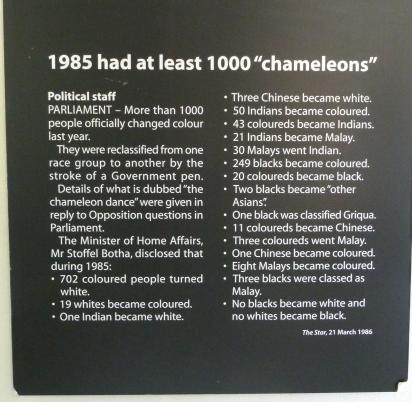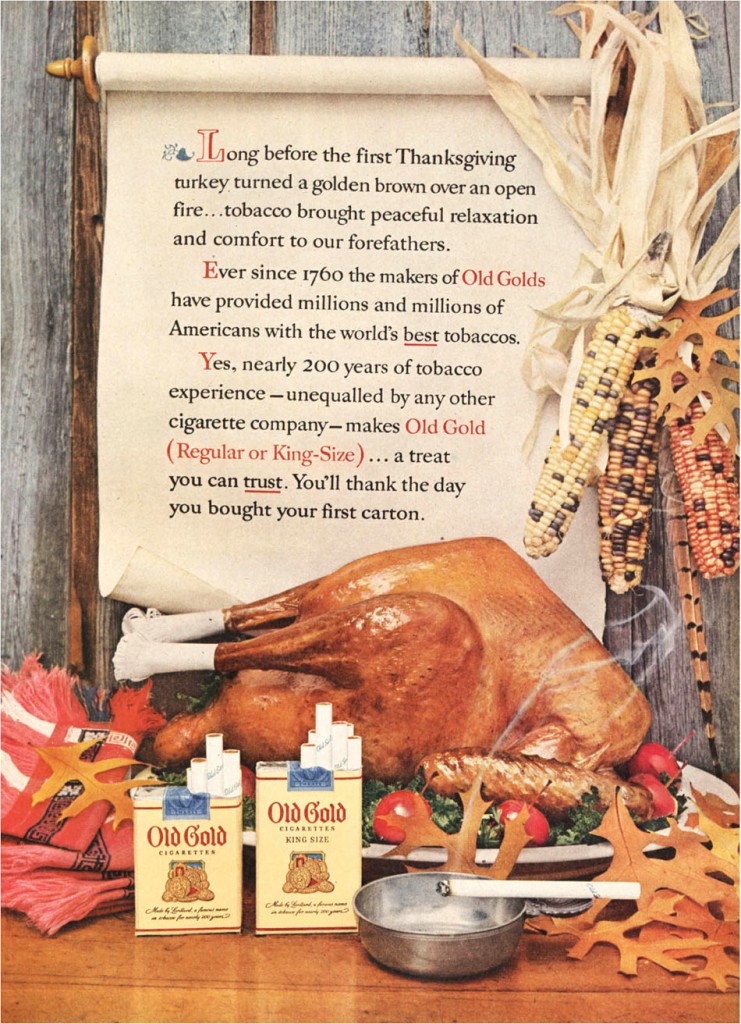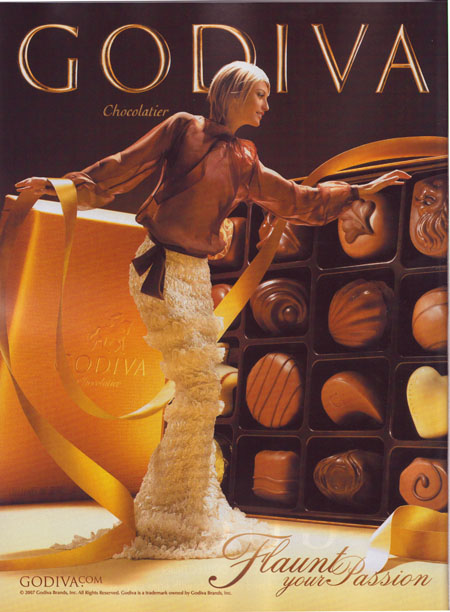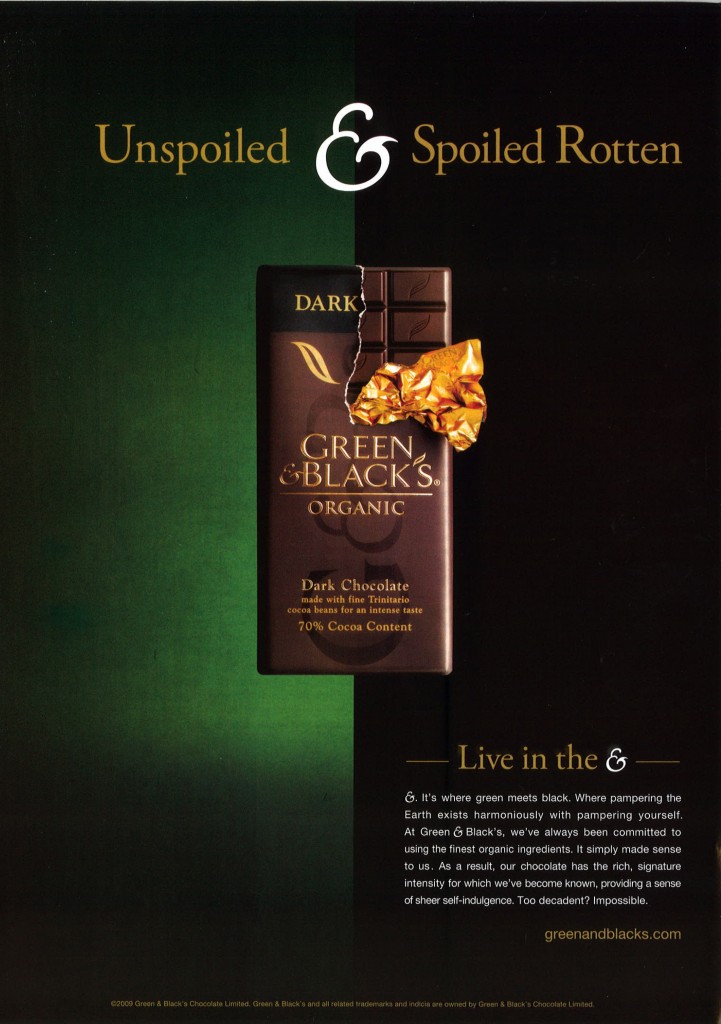Last month, Lisa posted a video of Jennifer Lee discussing the U.S. racial ideology with Dalton Conley. Jennifer (who teaches sociology at the University of California-Irvine) emailed us to let us know there’s now a second video, in which she discusses the difference between race and ethnicity, as well as how racial ideologies are socially constructed:
Peter Nardi, of Pitzer College, sent in an image that illustrates the social construction of race. He visited the Apartheid Museum in Johannesburg, South Africa, and took a photo of a plaque on the wall that reprinted information published in the Johannesburg-based newspaper The Star on March 21, 1986. The article reported on changes in the official racial classification of over 1,000 South Africans in 1985:
Because race is socially constructed, racial classifications change as underlying racial ideologies shift, sometimes opening up opportunities (for instance, allowing groups to be classified as a less stigmatized race) but also often reinforcing racial stratification (such as when the U.S. made the “one-drop” rule, by which you were African American if you had even one Black ancestor, official policy, preventing mixed-race individuals from avoiding the stigma of being Black).
And I’m visiting my family until the 28th, so I will have very sporadic internet access. I’ve scheduled posts for the whole week, but I won’t be able to update/correct/respond much, so I apologize in advance. On the upside, my trips home often provide material for at least one post, so yay!













